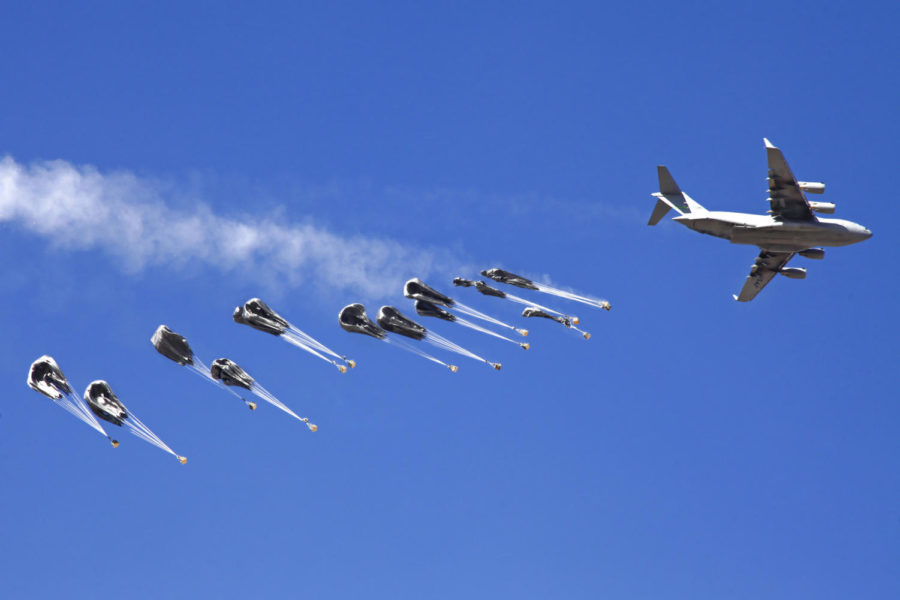Snyder: Propaganda campaign will be ineffective
Snyder
March 26, 2015
The fight against ISIS in the Middle East has begun to take new shape this week as the United States has started executing airstrikes in Tikrit, Iraq in an effort to push enemy fighters back and gain a strategic foothold for reclaim the city of Mosul. However, the Department of Defense — never one to put all of its eggs into one basket — is also engaging in a less direct method of attack to destabilize the ISIS presence in Syria.
Raqqa, Syria, a power center for ISIS, was subject to a different type of aerial attack from United States force. On March 16, a reported 60,000 anti-ISIS propaganda leaflets were airdropped into the city in an attempt to dissuade potential recruits from joining the organization. The image depicts recruits at an ISIS “recruiting office” being promptly fed into a meat grinder.
The provocative and intentionally disturbing image is “trying to set the stage for an internal uprising against ISIS,” said Nicholas Heras, an ISIS expert from the Center for a New American Security in an interview with USA Today. There have been reports of unrest in Raqqa concerning the hesitance of foreign fighters who have joined ISIS to engage in conflicts in Kobani, Syria, which sits on the Turkish border.
ISIS has reportedly responded in kind by executing members of its organization who are unwilling to fight. The goal of creating an internal insurrection among ISIS fighters seems far fetched because even members who simply wish to leave have been killed by ISIS, so the likelihood of an uprising from with seems unlikely. I am by no means an automatic advocate for the use of extreme force in situations where United States intervention is deemed necessary, but I don’t believe that evoking emotional responses among the enemies ranks will be a productive means of rooting ISIS’ presence in Syria.
So if we can have very little expectation of internal ISIS conflicts, then who are we relying on to act as a result of seeing these leaflets? According to Heras’ USA Today interview, we may very well be waiting on the regular citizens of Raqqa to rise up in their own defense. This is a serious miscalculation if it is the true intent of the U.S. government.
The common people of Raqqa are already tasked enough in their attempts to stay alive under ISIS rule. To ask them to organize and lead their own insurrection and further endanger their lives is an extreme disservice to the people who the U.S. led coalition against ISIS has promised to protect. While the United States and its allies focus their efforts on the fighting in Iraq, the terrorized Syrian citizens have cause to feel that they have been forgotten, and if a militia response is truly what the U.S. desires as a result of this propaganda drop, then they have cause to feel insult has been added to injury.
We have in ISIS an extremely well organized power structure that seems to value control over operatives and loyalty above all else. The organization is extremely well funded and startlingly successful in its own propaganda recruitment efforts. This effort is very much just part of the process in fighting an enemy and has been used by countless governments in countless and varying types of conflicts. But ISIS is much more than a militia group with a loose power structure, ill-defined goals and a lack of authority over the regions it controls.
If the options in deciding how to act were drop propaganda leaflets or initiate a troop surge back into the Middle East, then I’ll take leaflets every day of the week. However, it is unreasonable to believe that dropping paper will be effective. If there will ever be a time for the U.S. to drop paper on the city of Raqqa, it will be a time when that paper is accompanied by U.S. military ordinance and a ground presence of established and nationally supported anti-ISIS militia forces.







